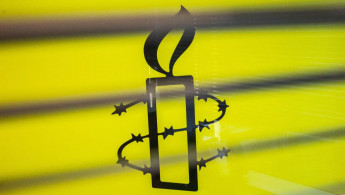Amnesty condemns 'harassment' of Moroccan human rights defenders after arrest Saida El-Alami
Morocco is stepping up their harassment of human rights defenders and activists, Amnesty International has said, some jailed for voicing their opinions on social media.
The human rights group has accused Rabat of using bogus charges to detain activists, in a bid to stamp out criticism of authorities and called for their immediate release.
It comes after Saida El-Alami, a Moroccan human rights defender and blogger, was arrested on 23 March for "insulting public officials".
"The Moroccan authorities are harassing and intimidating activists through unfounded criminal investigations and bogus charges in a shameless bid to silence critical voices and clamp down on peaceful activism," said Amna Guellali, Deputy Regional Director for the Middle East and North Africa at Amnesty International.
El-Alami is facing charges over social media posts where she spoke of the harassment she has faced from police and the continued repression of journalists and activists.
The activist had used her Facebook page to address social and political issues in Morocco.
After condemning a number of public officials in social media posts, El-Alami received a summons and was placed in custody for 48 hours before being sent to the first instance court in Casablanca. El-Alami is expected to appear in court on Friday.
Amnesty says banning Moroccans from 'insulting' or 'disrespecting' state officials or public figures, the military, or other public institutions violates their right to freedom of expression.
With the Moroccan human rights council remaining silent on El-Alami’s arrest, some activists who have dared to publically support El-Alami are now facing charges.
On March 26, Casablanca police travelled 432 kilometers south to arrest blogger Mohamed Bouzlouf, who had expressed support for the detained activist in a Facebook post. A court sentenced him to two months in prison on Monday.
"Amnesty International calls on the Moroccan authorities to end the prosecutions of activists who have been critical of public figures, state officials or state institutions, and to ensure that people are free to express their opinions without fear of reprisals. All penalties for insult or defamation of public officials must be quashed," a statement from the rights group said.





 Follow the Middle East's top stories in English at The New Arab on Google News
Follow the Middle East's top stories in English at The New Arab on Google News
![Israeli forces ordered bombed Gaza's Jabalia, ordering residents to leave [Getty]](/sites/default/files/styles/image_330x185/public/2176418030.jpeg?h=a5f2f23a&itok=_YGZaP1z)

